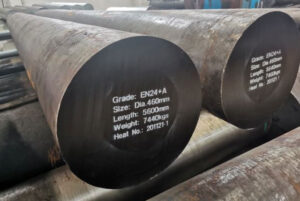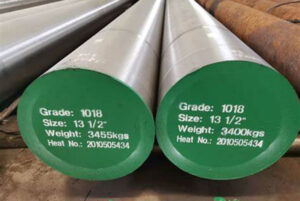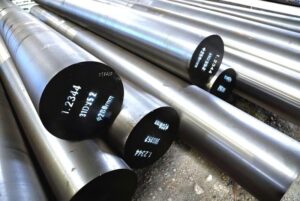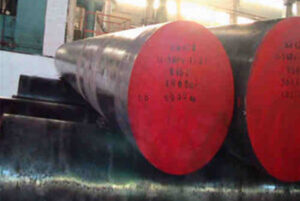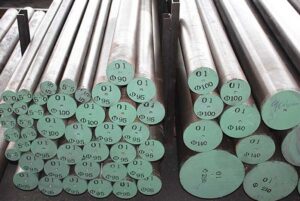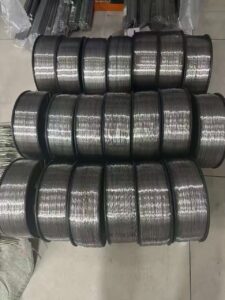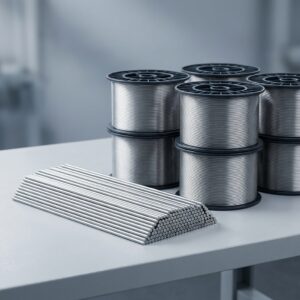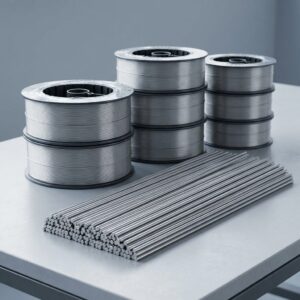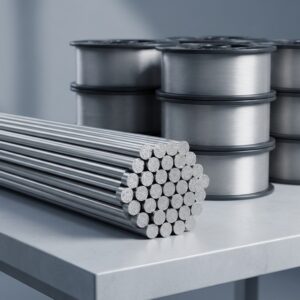Imagine a material that’s incredibly strong yet surprisingly lightweight, resistant to corrosion like a champion, and can withstand scorching temperatures. That’s the magic of titanium wire TA1, a workhorse metal used in countless applications where resilience and reliability are paramount.
This comprehensive guide dives deep into the world of TA1 titanium wire, exploring its composition, properties, advantages, limitations, and various applications. We’ll also unveil a diverse range of metal powder models suitable for creating TA1 wire through additive manufacturing, giving you a holistic understanding of this remarkable material.
the Essence of Titanium Wire TA1
TA1, also known as Grade 1 or commercially pure titanium, stands as the foundation for the titanium wire family. It boasts a minimum of 99.0% titanium content, with minimal traces of elements like iron, oxygen, and nitrogen. This near-pure composition grants TA1 its unique set of properties, making it a highly sought-after material across various industries.
Here’s a table summarizing the key characteristics of TA1 titanium wire:
| Property | Description |
|---|---|
| Composition | Minimum 99.0% Titanium (Ti) |
| Density | 4.51 g/cm³ (lighter than steel) |
| Melting Point | 1668°C (3034°F) |
| Strength | High tensile strength and good fatigue resistance |
| Corrosion Resistance | Excellent resistance to most acids, alkalis, and saltwater |
| Biocompatibility | Non-toxic and compatible with human tissue |
| Ductility | Good ductility in its annealed state |
| Electrical Conductivity | Poor conductor of electricity |

Metal Powder Models for Additive Manufacturing of TA1 Wire
The rise of additive manufacturing (AM) has opened exciting possibilities for creating complex shapes with TA1 titanium. Here are 10 prominent metal powder models specifically designed for AM applications:
- AMCP Ti-CP (Höganäs): Offers excellent printability and mechanical properties.
- AP&C CP Ti (LPW Technology): Renowned for its high flowability and good corrosion resistance.
- EOS Titanium TiCP (EOS GmbH): Well-suited for laser melting processes, delivering high strength and ductility.
- SLM 125 Ti (SLM Solutions): Developed for selective laser melting, known for its fine particle size and good weldability.
- Element Ti-CP (Element Materials Technology): Provides exceptional surface quality and dimensional accuracy in printed parts.
- AM Ti Grade 1 (Additive Industries): Optimized for metal additive manufacturing, ensuring consistent printability.
- TRITON™ CP Ti (GE Additive): Offers exceptional flowability and high packing density for intricate geometries.
- Ti-6AI-4V (AM) (Carpenter Additive): While not strictly TA1, this titanium alloy powder is AM-compatible and offers high strength-to-weight ratio.
Choosing the right metal powder depends on factors like the specific AM process used, desired mechanical properties, and surface finish requirements. Consulting with material suppliers and AM experts is crucial for selecting the optimal powder for your project.
Applications of Titanium Wire TA1
TA1 titanium wire finds its place in a diverse range of applications due to its unique blend of strength, corrosion resistance, and biocompatibility. Let’s explore some prominent sectors where TA1 reigns supreme:
Aerospace & Defense:
- Aircraft structures: TA1’s lightweight nature and high strength make it ideal for various aircraft components, from landing gear to airframes.
- Engine components: Its ability to withstand extreme temperatures makes it suitable for jet engine parts like compressor blades.
- Military applications: Due to its corrosion resistance and strength, TA1 is used in military hardware like missile casings and armor components.
Medical & Biomedical:
- Surgical implants: The biocompatibility of TA1 allows its use in orthopedic implants like bone screws and plates.
- Dental applications: TA1’s corrosion resistance makes it a popular choice for dental implants and orthodontic wires.
- Medical devices: Its strength and lightweight properties make it suitable for various medical devices like heart valves and stents.
Chemical & Petrochemical:
- Heat exchangers: TA1’s excellent corrosion resistance enables its use in heat exchangers exposed to harsh chemicals.
- Piping & tubing: Its ability to withstand high pressures and resist corrosion makes it suitable for piping systems in chemical plants.
- Pressure vessels: TA1’s strength and corrosion resistance make it a viable option for pressure vessels handling corrosive chemicals.
the Pros and Cons of Titanium Wire TA1
TA1 titanium wire boasts an impressive array of advantages, making it a compelling choice for various applications. However, it’s essential to understand its limitations to ensure it’s the right fit for your project.
Advantages of TA1 Titanium Wire:
- Unmatched Strength-to-Weight Ratio: Compared to steel, TA1 offers superior strength while being significantly lighter. This makes it ideal for applications where weight reduction is crucial, like aerospace and transportation.
- Exceptional Corrosion Resistance: TA1 stands strong against corrosion from most acids, alkalis, and saltwater. This makes it perfect for marine environments, chemical processing plants, and medical applications.
- Biocompatibility: The human body readily accepts TA1, making it a valuable material for medical implants and surgical instruments. Its biocompatible nature minimizes the risk of rejection and infection.
- High-Temperature Performance: TA1 retains its strength and integrity even at elevated temperatures. This makes it suitable for applications involving high heat, like jet engine components and heat exchangers.
- Good Ductility: In its annealed state, TA1 exhibits good ductility, allowing it to be shaped and formed into various configurations. This versatility broadens its application potential.
Considerations and Limitations of TA1 Titanium Wire:
- Cost: Compared to some common metals like steel or aluminum, TA1 is a more expensive material. This cost factor needs to be weighed against its superior performance benefits.
- Machinability: While machinable, TA1 can be more challenging to machine compared to some other metals. This requires specialized tools and techniques, potentially impacting production costs.
- Electrical Conductivity: TA1 is a poor conductor of electricity. This limits its use in applications where electrical conductivity is a critical factor.
- Weldability: Welding TA1 requires specific techniques and inert gas environments to prevent contamination and ensure weld strength.
The key takeaway is to carefully evaluate your project’s requirements and weigh the advantages of TA1 against its limitations. When strength, corrosion resistance, and biocompatibility are paramount, and cost considerations are manageable, TA1 titanium wire emerges as a champion.





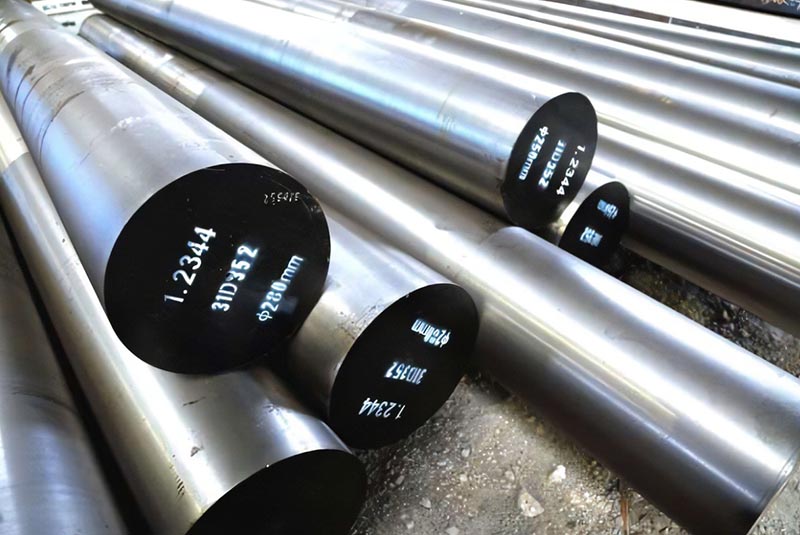
Specifications, Sizes, and Grades
TA1 titanium wire comes in various specifications, sizes, and grades to cater to diverse applications. Let’s delve into the key factors to consider when selecting the right TA1 wire for your project:
Specifications:
- ASTM B880: This standard outlines the specifications for commercially pure titanium bar, rod, and wire, including TA1.
- AMS 4928: This aerospace material specification (AMS) defines the requirements for commercially pure titanium wire specifically used in the aerospace industry.
Sizes:
TA1 titanium wire is available in a wide range of diameters, typically ranging from 0.05mm (0.002 inches) to 6mm (0.236 inches). The specific diameter selection depends on the application’s strength requirements and the desired level of flexibility.
Grades:
While TA1 is the most common commercially pure titanium grade, there are other options within this category, each with slightly varying properties:
- TA2: Offers a slightly higher oxygen content compared to TA1, leading to improved strength but slightly lower ductility.
- TA3: Contains even higher oxygen content than TA2, resulting in the highest strength among commercially pure titanium grades but with the least ductility.
The choice of grade depends on the specific balance of strength and ductility needed for your application. Consulting with material suppliers and considering factors like formability and welding requirements is crucial for selecting the optimal grade.
Here’s a table summarizing the specifications, sizes, and grades of TA1 titanium wire:
| Property | Description |
|---|---|
| Specifications | ASTM B880, AMS 4928 |
| Diameter Range | 0.05mm – 6mm (0.002″ – 0.236″) |
| Grades | TA1 (most common), TA2, TA3 |
Suppliers and Pricing
Titanium Wire TA1 is readily available from various reputable metal suppliers worldwide. Pricing can vary depending on factors like the specific diameter, quantity purchased, and supplier location. Generally, expect TA1 to be more expensive compared to common metals like steel or aluminum.
Here’s a table listing some potential suppliers of TA1 titanium wire:
| Supplier | Location | Website |
|---|---|---|
| Alfa Aesar | Ward Hill, MA, USA | https://www.thermofisher.com/us/en/home/chemicals.html |
| McMaster-Carr | Robbinsville, NJ, USA | |
| Alfa Aesar | Ward Hill, MA, USA | https://www.thermofisher.com/us/en/home/chemicals.html |
| McMaster-Carr | Robbinsville, NJ, USA | https://www.mcmaster.com/ |
| Eagle Alloys Corporation | Talbott, TN, USA | https://www.eaglealloys.com/shop/ |
| ThyssenKrupp Materials NA | Troy, MI, USA | https://www.thyssenkrupp-materials-na.com/ |
| Speciality Metals | Whitehall, MI, USA | http://www.specialtyrolledmetals.com/index-4.html |

FAQ
Here, we answer some commonly asked questions regarding TA1 titanium wire:
Q: Is TA1 titanium wire strong?
A: Yes, TA1 offers a remarkable strength-to-weight ratio. While not the strongest metal overall, it boasts superior strength compared to its weight, making it ideal for applications requiring lightweight yet sturdy materials.
Q: Does TA1 titanium wire rust?
A: No, TA1 exhibits exceptional corrosion resistance against most environmental factors, including moisture and salt. This makes it perfect for applications in harsh environments like saltwater or where exposure to chemicals is a concern.
Q: Can TA1 titanium wire be welded?
A: Yes, TA1 can be welded, but specific techniques and inert gas environments are necessary to prevent contamination and ensure a strong weld. Consulting with a qualified welder experienced in working with titanium is recommended.
Q: Is TA1 titanium wire safe for the human body?
A: Yes, TA1 is biocompatible, meaning it’s well-tolerated by the human body. This makes it a valuable material for medical implants and surgical instruments, minimizing the risk of rejection.
Q: What are some alternatives to TA1 titanium wire?
A: Depending on the specific application requirements, alternative materials might include:
- Stainless steel: Offers good corrosion resistance at a lower cost but is heavier than TA1.
- Nickel alloys: Provide exceptional strength and high-temperature performance but can be more expensive than TA1.
- Carbon fiber: An excellent choice for lightweight applications requiring high strength, but its electrical conductivity is higher than TA1.
The ideal alternative depends on the specific needs of your project, considering factors like strength, weight, corrosion resistance, cost, and electrical conductivity.
Conclusion
TA1 titanium wire stands out as a versatile and high-performance material for various applications. Its exceptional strength-to-weight ratio, unmatched corrosion resistance, and biocompatibility make it a compelling choice across industries like aerospace, medicine, and chemical processing. By understanding its advantages, limitations, and various specifications, you can determine if TA1 is the perfect fit for your next project.

